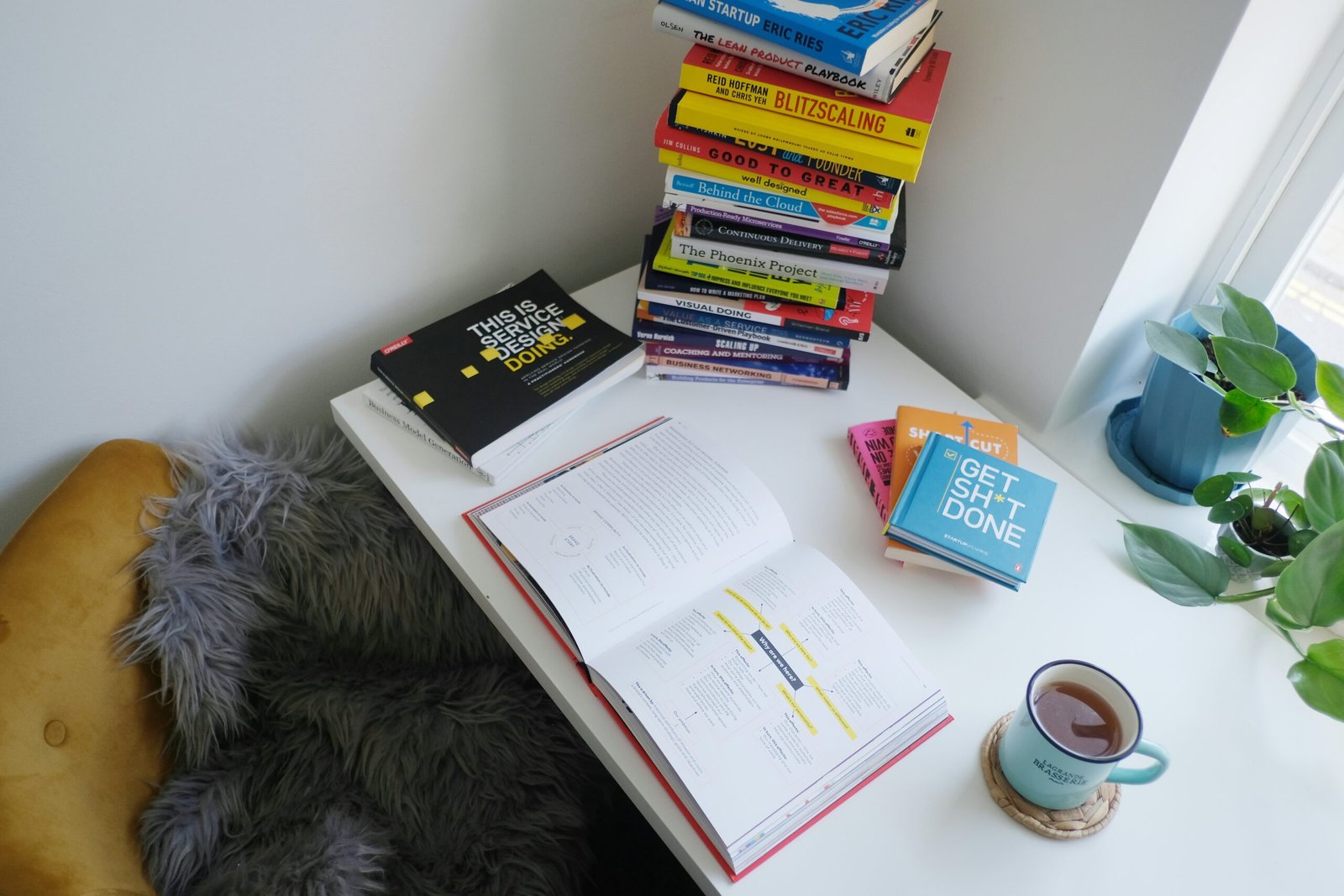Having a daily routine may seem insignificant to you, but trust me when I say it is important. Having a schedule allows you to stay productive and keep your stuff organized. It also helps you relieve stress if you have one for your day.
Life can be so hectic at times, that when you have a laid-out routine for your day, it helps you out.
You know what to do and when to do it. It gives your day structure and clarity. Below are tips on how to create your perfect daily routine.
How to Build a Daily Routine That Feels Perfect for You – 8 Tips
1. Determining Your Goals and Priorities
One of the first things you want to do when creating a daily routine that will help you live by your values is determine your goals and priorities.
Your goals can be big or small and can include things like school, personal goals, and social. No matter the goal you have, it’s important to know what they are so you can prepare to add them to your schedule.
Take a deep breath and think about what you really want to accomplish. Jot down some goals that you want to achieve in your lifetime—both small and large. By doing this, you will know what you value most.
Ask yourself questions when thinking about your goals that will help you determine how important they are to you and your day.
What does success look like to you?
What habits do you want to build?
How do you want to grow in school/work? What skills do you want to learn?
Do you want to spend more time with friends?
Answering these questions can help you solidify your goals and what you value most. Once you have your goals written down, take a look at them and see which ones you value most.
Also, think about how much time you want to dedicate to each goal. You don’t want to overwhelm yourself. Write down how each goal connects to another.
You will be able to figure out what you want to focus on and what you want to do daily.
Read Also: 9 Ways to Be the Best Version of Yourself
2. Figure out What Time of Day You’re Most Productive
You know yourself best. When thinking about what time of day you’re most productive, think about when you feel you have the most energy.
You could do this by keeping a journal for the next week or two. Write down what times of the day you feel you can do the hardest tasks, or maybe when you need to take a break and do something that doesn’t require a lot of energy.
You can also try this:
Block out sections of your day
High-Medium-Low productivity time
Think about your sleep, food, exercise—all things that could affect your energy level at different times of the day.
You may find that you’re more productive in the morning. Or maybe your brain functions better later in the afternoon or evening.
Once you figure this out, you’ll be able to schedule your biggest tasks you need to get done. Whether that be thinking about the future and strategic planning, problem-solving, or maybe even being creative and writing.
Use this to your advantage and schedule your hardest tasks for the times where you know you’ll be able to give it your all.
You could try using methods like the Pomodoro method, where you work for 25 minutes then take a break. Play around with what times you do certain tasks.
3. Build a Well-Rounded Routine

You want to start by writing down different aspects of your life that you spend your time on. These can include anything from school work or your job to your hobbies or even taking care of yourself.
By writing these down and categorizing them, you will know how much time you want to dedicate to each subject.
Make sure you spread out your day with things you have to do, such as school work or homework, and things you want to do. Maybe you want to learn how to play guitar or draw.
Do things that you’re interested in and allow yourself to be creative. Doing things you enjoy is a great way to relieve stress.
Exercise is also a great way to take care of yourself and should also be included in your daily schedule. Staying active will allow you to have more energy and help you focus.
Last but not least, you want to make sure you’re allowing yourself some downtime. If you don’t take time to relax and rest, you will burn yourself out. You won’t be as productive as you want to be.
Try to schedule breaks throughout your day where you can allow yourself to relax. Whether that be a 5-minute break to clear your mind, or you can practice some meditation.
Meditation is great because not only will it help you relax, but it can also help you build mental strength.
4. Allow Yourself Some Flexibility
If you want to create a daily routine that feels perfect for you, you’re going to want to schedule your day. Having a set schedule will not only make you more productive but will also give you a sense of purpose every time you wake up.
However, you want to make sure you allow yourself some flexibility. I know we just said you should schedule your day, but that doesn’t mean you can’t be spontaneous.
Life is going to throw you curveballs—that’s just how life works. Instead of stressing when something comes up that you haven’t accounted for, you want to embrace these moments and make the best of them.
Tip: Try scheduling free time throughout the day. This will allow you to do something spontaneous without feeling guilty.
You could schedule an hour each day where you know you have nothing going on. You can use this as a break, spend time with family, or take a hobby and turn it into some extra cash.
This will leave you more productive for the rest of your day and help you with mental wellbeing.
Another thing you should be doing when creating your perfect daily schedule is reassessing your day.
We all know life is never the same day to day. You could have a busy week at work, or maybe you find a new hobby that you want to dedicate more time to.
Reassessing your day will allow you to change your schedule as your life changes.
Allow your schedule to evolve as you go through new stages of life, whether that be work or new hobbies you’re passionate about.
Making sure you leave room for commitments and free time is the key to a balanced day.
5. Stick to Your Routine

If you want your routine to become your lifestyle, you’re going to have to build habits. Everything you do each day are habits. When you repeat these actions every day, you’re training your body to get used to this new lifestyle.
Think of your routine as background noise. At first you may struggle, but as time goes on your body will get used to this new schedule.
Tip: Start small when trying to build your routine. You don’t want to overwhelm yourself.
Once you feel you have your routine down, you should try tracking your habits.
You can do this by buying a habit tracker or even using a notebook. Tracking your habits will allow you to visually see your victories and failures.
It’s also a great way to keep yourself accountable.
Tip: Reward yourself for every victory, no matter how small.
This will keep you motivated to continue your journey and build your routine.
6. Revise it As Needed
Set aside a few minutes each week or month to evaluate your current routine. How is it working for you? Are there parts of your day that you’re looking forward to, or parts that you try and avoid thinking about?
Life changes all the time, so your routine should too. Maybe you got a new job or found a hobby you’re passionate about. Changing up your routine can be a great way to stay mindful of these new goals.
If you’ve noticed that you no longer have the time to go to the gym 5 times a week, try looking into other ways to stay active or squeeze it into your day at different times.
Small changes can make your routine feel less boring and help you better achieve your goals.
You can even ask friends and family for feedback on how your routine is working for you.
By simply tracking your mood and energy throughout the day, you can get a good idea of where you should change.
Maybe you wake up every morning and meditate for 20 min, but you find that you don’t have time for breakfast. Your body needs fuel to start your day!
Try moving your meditation to lunchtime and allow yourself some time to eat in the morning.
7. Overcoming Challenges
As with creating anything, there will be obstacles that you’ll face. But don’t worry! I got you.
One challenge you may face is distractions. We live in a world of distractions—from your phone to outside noises. When you’re trying to better yourself, anything can pop up and attempt to distract you from your task.
Tip: Schedule times throughout the day where you allow yourself to work uninterrupted. Turn your phone off or look away from your tabs and let yourself focus.
Another challenge you may face is time management. We as humans are pretty bad at estimating how long something will take.
Tip: Use a planner to schedule your day out. Break your day into sections and schedule everything you need to do.
This will allow you to manage your time better because you will know exactly how much time you have throughout the day.
The last challenge I will cover is some days you’re just going to have an off day. And that’s okay!
I hate to break it to you, but sh*t happens. Instead of getting frustrated with yourself and giving up on your routine, take a step back and look at the bigger picture.
What can you move or adjust to fit your new situation? Don’t be too hard on yourself because by beating yourself up you’re only discouraging yourself from continuing your journey.
Remember to stay positive, and your journey will be enjoyable!
8. Incorporating Relaxation Into Your Schedule
Self-care is something we tend to skip over because we are always working. But you need to allow yourself some time to relax.
By relaxing each day, you allow your body to recharge and you’ll be more likely to have better health.
Similar to determining what your goals are, you want to determine what helps you relax.
Do you like to work out? Maybe you enjoy meditation or journaling.
Maybe doing something active isn’t for you but you enjoy taking care of your body. Maybe taking a warm shower or applying lotion helps you relax.
Whatever helps you unwind, you should schedule that into your daily routine.
Tip: Schedule yourself some “me time” in the morning and evening.
You want to start your morning off right, so maybe while you’re drinking your coffee each morning, you can read or write down your goals for the day.
This will allow you to really think about what you need to accomplish that day and start your morning off on a positive note.
At night, you want to be unwinding so you can sleep peacefully. Maybe before bed you like to read, take a nice warm bath, or draw.
Figure out what helps you relax and schedule it into your day.
Conclusion
Remember, creating the perfect daily routine for you takes time. Don’t get discouraged if you can’t perfect your routine tomorrow.
You’re going to have to experiment with what works for you and what doesn’t.
Trust the process, and you’ll find yourself creating a lifestyle you never knew you wanted.
Save the pin for later



